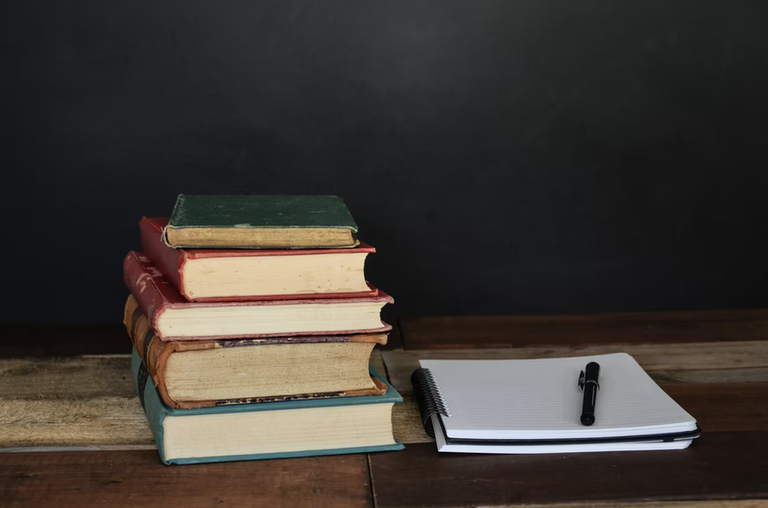On poetry and the past: to write down the unexpressible

"The fate of poetry is to fall in love with the world in spite of History" — Derek Walcott
These past weeks, I have been revisiting various sections of my life, some for the last time before kicking them into oblivion, others to collect the lessons and the love I want to carry forward. Today, I can say that my mind is well-anchored in the present, with the intention of living it to the fullest and making the most of what I have, while my heart is set on the future, dreaming and hoping. I've been able to look back to the person I was and find value in her thoughts, which are mine. Going through my old stuff, I found pieces of me I'd like to share with you, bit by bit, as a compendium of memoirs that speak of the woman I am. Perhaps this will inspire you to do the same.
As part of the professional training, the curricula of the Simón Bolívar University, where I studied, include a series of subjects called General Courses. The objective of these is to provide the future graduate with an integral and complementary vision, beyond his or her area of interest. These General Courses are of an elective nature and include a range of subjects such as literature, philosophy, politics, economics, biodiversity, biotechnology, among others.
Although I was studying biology, an almost purely scientific career, my humanistic streak was always present in my choices of elective courses. In them, I learned about art, about history, about others, and about myself, the most valuable knowledge that college left me with. Today I share with you one of my essay attempts, originally written by hand and in Spanish for a poetry class, from my limited knowledge and with more passion than a true vocation for it. For me, literature is more about everyday life and less about the 'study of the study' of literature, if that makes sense. I hope you enjoy it and find value in it.

Poetry, according to Eagleton (2007), "is the language in which meaning or sense is the overall process of meaning itself." In other words, poetry is both its own language and purpose. On the other hand, Shelley (1986) defines it as "an expression of the imagination." Poetry can be as much as is imagined from it, for the writer and for the reader, in more or less equal parts. In this same line of thought, it can be observed that since its origins in the aoidos, poetry has represented a certain vision associated with a certain reality, both historical and fictional.
Throughout its existence, poetic language has been linked to the voice of humanity. Its purpose: to echo and reverberate through time, from the past and into the future. Indeed, all artistic expression has the potential to achieve this end, to a greater or lesser degree, but perhaps poetry is the most intimate of them all. Writing and reading poetry is as much an individual experience as it is a collective one. Words are exhaled from the soul, only to be inhaled by someone else.
Over the course of history, during the process of language experimentation prior to the avant-garde, two interesting poetic currents can be identified: Apollonian poetry, which focuses on reason, and Dionysian poetry, which comes from the impulses of the earth, passion, and intuition. Either way, poetic language allows a deeper approach to reality and to the intrinsic and mysterious truths of life. It is the poetic use of any word or set of words, that is laden with meaning, not just the expressions themselves. It is important to note that, without the externalized representation of the poetic voice or state, poetry as a genre would not exist as we know it.
The poem then becomes the materialization of the voices and poetic states of individuals and entire generations, and consists of several indispensable and concrete elements: structure, form, meaning, and rhythm. The metrical characteristics, the subject matter, the language used, and its cadence; a poem can be dissected and separated, but its true purpose is simply to be read, over and over again.
An impressionistic reading of a poem makes it possible to connect with the artistic expression expressed by the author. A second approach, that of critical reading, implies specifying the nature of the poem: what does it say? How does it say it? This, through the identification of the significant nuclei of the poem, and their relationship or contradiction. However, when analyzing a poem, over-interpretation must be avoided. The multiplicity of meaning is as rich and varied as human diversity, but it is always delimited by the individuality of the author.
- Eagleton, T. (2007). Cómo leer un poema. Madrid: Akal, p. 31.
- Shelley, P.B. (1986). Defensa de la poesía. Barcelona: Ed. Península, p. 23.
Sources of the images:
📷 by Iñaki del Olmo
📷 by Debby Hudson
I'd like to thank you for reading this. I hope my words resonated with you in some way. If they did, or even if they didn't, I'd like to further connect with you, so I invite you to drop a comment and I'll answer it as soon as I can.
Stop writing so well and leave some for us! 😉
Thank you for the compliment! I try to write, yes. This particular attempt of an essay got a 14/15 grade, I'm still yet to figure out what was missing! 😅
Maybe nothing was missing and the loss of one point was simply because true perfection doesn't exist; maybe motivation to make you feel like working harder to continually improve.
Hi! Thank you for sharing this. I must say that I have never been much of a poetry reading with a few exceptions, of poems and authors that I have read circumstantially and that repeat themselves in my memory.
Something that goes in line with what you say in here.
And you studied biology, my son is about to finish high school, and that is what he wants to study.
It is good to hear that you live now in the present with your heart in the future, the past is part of us, but we should never let it chain us.
Well said here and it goes for everyone.
Hi there! Thank you for your thoughtful comment, it's very much appreciated.
Poetry is a difficult genre, for lack of a better word. I've come to realize that each generation has its own poetic voices, and the differences between them are increasingly greater. Technology makes everything change so fast, it's hard to keep up with it, and so the artistic expressions suffer a process worthy of a closer look.
I like that your son is interested in Biology! Does he know where he wants to study it yet? It's a beautiful career. I enjoyed particularly the courses related to evolution and ecology. It's very interesting to consider humans as yet another species shaping the ecosystem, with our own dynamics which affect so much of the natural world.
From the past, I wish to carry only the lessons and the love. This year I'm going to be present and to plan for the future. Thank you for your kind words!
Technology has been influencing so much in all fields including artistic expressions, that It's hard to keep track of so many new things or maybe the years are getting to me, jeje.
The area that interests him most is biophysics and artificial intelligence. Of course, there is nowhere to study this field here, and even studying biology is difficult as things are in universities like USB. So he has been researching and applying for scholarships abroad to see if he can get one; if not, he will start studying medicine and then see if he can go.
Siempre es un placer leerte, Un abrazo!
Congratulations @beautifulwreck! You have completed the following achievement on the Hive blockchain and have been rewarded with new badge(s):
Your next target is to reach 3000 upvotes.
You can view your badges on your board and compare yourself to others in the Ranking
If you no longer want to receive notifications, reply to this comment with the word
STOPCheck out the last post from @hivebuzz:
<3
Poetry for me gives expression to the soul. I very much enjoy reading it and like to dabble myself on occasion when inspiration strikes.
When a poet puts their creation out into the world, it is an expression of some part of who they are, an expression of something that they connect with on a mental, spiritual or creative level. The intention behind it belongs to them, the singular. Once it is released to the world, however, it's interpretation belongs to the many. They lose control of how it is received, read, absorbed, understood, critiqued and analysed. And that is how it should be. It can be illuminating to discover the original intent and purpose behind a piece of creative writing, but sometimes it is completely unexpected and so far from the interpretation that we took, that it would appear that there may be two different scripts on the table. I guess at the end of the day, for the reader, the consumer of the arts, it is the message that they derived from the piece that spoke to them that counts 🙏 I enjoyed your article, thank you for sharing it.